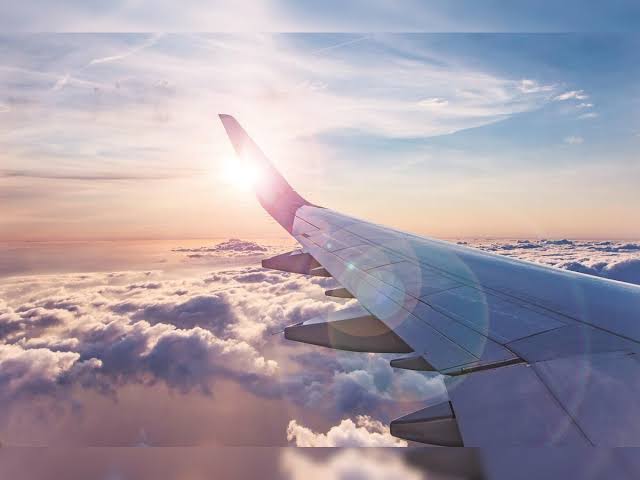The World Travel & Tourism Council (WTTC) has launched a landmark report at its Global Summit in Perth, Western Australia, highlighting how Indigenous tourism is projected to contribute USD 67BN to the global economy by 2034.
The report showcases the sector’s role in driving economic growth, particularly in remote regions, and its vital contribution for cultural preservation and community empowerment.
Indigenous tourism is rapidly emerging as a key economic driver. It creates jobs and economic value in remote areas. It promotes and protects Indigenous people’s cultures, languages and lands. And gives visitors a unique opportunity to experience and learn about Indigenous history and tradition.
With the global Indigenous tourism market set to grow at a CAGR of 4.1% over the next decade to reach USD 67BN, this sector is empowering communities to take control of their economic futures.
Interest and participation in Aboriginal tourism experiences continues grow in Western Australia, with the highest results recorded to date this year. According to Visitor Experiences and Expectations Research (VEER), almost nine in 10 visitors are interested (87%) and more than a third (36%) participated in Aboriginal tourism in WA in 2023-24. The economic contribution of Aboriginal tourism businesses continues to improve, with this sector adding $63,8 million to the Gross State Product in Western Australia in 2021-22.
In Canada alone, the Indigenous tourism sector supports nearly 2,000 businesses, and over 39,000 jobs, contributing CAD1.7BN to the economy in 2017.
Similarly, in Panama’s Guna Yala region, tourism is the primary economic driver, sustaining the Guna people and their culture while creating a self-sufficient economy.
This economic boom is fuelled by increasing demand for authentic cultural experiences, in countries such as Canada, Australia, and the United States, amongst others.
In Australia, more than 1.4MN international visitors engaged in Indigenous tourism experiences in 2019, marking a 6% year-on-year growth since 2010.
Speaking at the global tourism body’s 24th Global Summit in Perth, Western Australia, Julia Simpson, President & CEO, WTTC, said, “Indigenous tourism is not only about showcasing rich cultural traditions; it’s about empowering communities, creating sustainable jobs, and ensuring that Indigenous people are in control of their own stories and economic futures.
“This report demonstrates the immense potential of Indigenous tourism to drive economic growth, particularly in remote regions, while preserving invaluable cultural heritage. As global demand for authentic experiences continues to rise, it is crucial that we support Indigenous businesses and ensure they have access to the resources and funding needed to thrive.”
Western Australia Indigenous Tourism Operators Council (WAITOC) CEO Robert Taylor highlighted the importance of authentic Indigenous experiences. WAITOC has worked closely with Tourism Western Australia to develop an action plan to support the continued development of Indigenous tourism in the state. The Jina: Western Australia Aboriginal Tourism Action Plan 2021-2025 supports new businesses and encourages more Aboriginal people to work in the tourism industry.
“Western Australia is well on its way to becoming the premier destination for authentic Aboriginal experiences in the country,” Taylor said.
“Our Camping with Custodians is just one example of the continued growth of Aboriginal tourism in Western Australia. This Australian-first program develops high quality campgrounds on Aboriginal lands,” he said.
“In May, we celebrated the launch of the seventh site. Located in Lombadina, on the Dampier Peninsula north of Broome. These campgrounds are owned and operated by the respective Aboriginal community, bringing funding and employment opportunities.
“We are also seeing a strong growth in product offerings, including several womens-only experiences,” he said.
Preserving Culture Through Tourism
The report, Supporting Global Indigenous Tourism, shows how Indigenous tourism also plays a crucial role in preserving cultural heritage, languages, and traditional practices.
The Sámi people of Northern Europe, for example, have developed certification marks such as “Sámi Duodji” to protect their rich traditions, while Peru’s innovative Kipi robot helps preserve endangered languages like Kukama, spoken by just 2,000 people.
By incorporating these elements such as these into tourism, Indigenous communities can safeguard their cultural identities.
Sustainable Career Paths and Inclusivity
Indigenous tourism is also a sustainable career path, exemplified by Canada’s Indigenous Tourism Association of Canada (ITAC), which empowers communities to control of their futures through tourism.
Meanwhile, countries like Australia and the U.S. are increasingly incorporating Indigenous experiences into national tourism marketing, ensuring authentic representation.
Access to Funding and Growth
Despite the growth of Indigenous tourism, many operators face challenges in securing funding, but efforts such as Canada’s Indigenous Tourism Destination Fund (ITDF) aims to raise CAD2.6BN by 2030, to create 800 new Indigenous businesses and over 21,000 new jobs.
These funds are critical to ensuring Indigenous communities benefit fully from the booming tourism industry and can continue to grow sustainably.
WTTC is committed to lending its voice to this important conversation and support the efforts of Indigenous peoples worldwide in shaping their own tourism narratives and ensuring Indigenous tourism remains a thriving, self-sustaining industry that benefits everyone.





